Blindboy Boatclub on the power of words
- Text by Josh Jones
- Photography by Blindboy Boatclub

Musician, comedian, podcaster, writer and philosopher, Blindboy Boatclub is a cultural figurehead and one of Ireland’s foremost artistic voices. He has published two number-one bestselling books of short stories: The Gospel According to Blindboy and Boulevard Wren and Other Stories, and his show The Blindboy Podcast reaches more than one million listeners monthly. This winter sees the release of his third book, Topographia Hibernica, which unravels the knotted threads of humanity, nature and colonisation, using subjects from a donkey being stuffed into the back of a Fiat Punto, to jackdaws pecking brains out through the roof of a confessional box. Just before he took the book on tour, we spoke to him to find out how words impact his life. Blindboy Boatclub is Huck #80’s Artist-In-Residence.
This issue of Huck is the Power of Words issue – what’s the most impactful or inspiring piece of text you’ve ever read?
“We are disturbed not by things, but by the views which we take of them,” from the Enchiridion of Epictetus. It’s a book from the second century that collated the lectures of Epictetus, who was a stoic philosopher from the first century. Epictetus had a way of framing the experience of existing that I find echoed in a lot of modern psychotherapeutic positions. “I can’t control what happens to me in my life, but I have control over how I react to it,” is something I work on daily. I bring that statement into my awareness as much as possible. It helps me to find great meaning in the suffering of being alive.
Your listeners truly love your podcast. Is there some sort of meta therapy occurring where you’re giving people mind relief, and by doing the podcast it is helping you too?
I trained to be a psychotherapist for a few years. I didn’t finish my qualification though, because my music career took off, so I went with that instead. So I’d never present myself as a mental health professional, I’m just an artist who incorporates psychotherapeutic theory into my practice. But there’s this approach within psychotherapy called “appropriate self disclosure”, where the therapist will disclose their own experiences and vulnerabilities, to create a feeling of safety with their client. Sometimes, I feel I do a bit of that with my podcast. I only ever speak about my lived experience when I discuss mental health. I speak about my anxiety, my pain as a form of self journalling. I try to be as honest and vulnerable as possible, to speak openly about my fears and my insecurities, to be raw with my emotions. I fucking love doing that, it feels like throwing my soul into the shower and washing it like a muddy Labrador. But I do find that when I’m comfortably vulnerable with my emotions, the listener feels comfortable and safe to reflect on their emotions, too. In their own space at their own pace.
How tightly scripted are the episodes or do you just go off and see where it takes you?
I’ve reflected on this a lot. A student at Trinity College over here in Ireland did their master’s degree this year on my podcast. They argued that my podcast should be viewed as literature. I’ve been saying for ages that my podcast is a never-ending, process-based novel. I’m aware how much that sounds insane. But I write with my mouth for people to read with their ears. An hour of audio takes about three days to record, because the podcasts are written rather than riffed. But what I’ve come to realise recently, is that I use recording software like a word processor. I edit sentences and words as audio, with the same effort and detail that I would if I was physically writing with my fingers on Microsoft Word. And this process is relatively new, it’s maybe a decade or so old. I couldn’t do this podcast back in 2010 for instance, because the PC I’d have been able to afford would have crashed with all the edits. In the past, spoken word was written out on a screen or page first, and then recorded. Because editing meant slicing up tape with razor blades. You had to edit on the page first. This had setbacks too. I can tell when spoken word is written on paper first. Lots of audiobooks are clunky as fuck, because they aren’t written with an audio medium in mind. I write with listening in mind, an oral medium. With audio editing software, processing power, and big hard drives, I can literally write with my mouth. One sentence might contain multiple takes of audio, but I can edit that quickly and seamlessly so that you’d never know. The same way a sentence in a book contains lots of deletes, keystrokes, rewrites. You can’t trace the writer's fingertips on the page like you can with a painting. You just have a finished sentence. My podcast is like that. It’s very heavily written and edited over multiple days, but the craft is then to make it all flow like a seamless riff. I don’t want anyone noticing the edits, no one wants to see the hand going up Kermit the Frog’s arse.
What’s worth mentioning too, is that I come from a musical background, and I write and record my podcast to a piano track. I was writing music on the same software I make the podcast on. I’ve been doing that since I was 17. There’s a musicality to how I write and record the podcast, the piano informs my pace and tone. So while I’m definitely not calling my podcast music, my process is closer to songwriting, than writing out spoken word on a page with the intention of reading it aloud after. A songwriter explores the feel of the music and lets that inform how the words emerge from their mouth. Consonants are like drums and vowels are like violins. There’s a song called ‘Shore Leave’ by Tom Waits, which I’ve probably listened to tens of thousands of times in my life. I hear so much of that song in my podcasts sometimes. I’m aware that a load of this shit sounds pretentious as fuck. But I’m genuinely curious about the boundaries of artistic mediums. I adore exploring a podcast as a novel that is informed by a songwriting process. It’s exciting and fun, it feels more like playing than working. I’d rather do that, than not do it because I’m scared of it failing.
I try to be as honest and vulnerable as possible, to speak openly about my fears and my insecurities, to be raw with my emotions. I fucking love doing that, it feels like throwing my soul into the shower and washing it like a muddy Labrador.
How do you deal with so many different words swirling in your head when you’re preparing for a tour, performing, recording podcasts and writing a book at the same time? Are you good at compartmentalising?
I don’t want to oversimplify this. But I’m diagnosed autistic, and it was suggested to me that my high tolerance for these things might be as a result of my neurodivergent brain. I don’t really have an off switch. I’m thinking about writing and creativity consistently. I mean literally non-stop with no break. I don’t want a break either, because I don’t experience it as anything other than joy. What would be overwhelming for me, is if I had to take a break from this so that I could be more social. I love people and having craic, but my social battery is quite low, so I don’t do it very often. All neurodivergent people are different, just like neurotypical people are different. But I’m quite lucky, I feel like the curiosity that I was born with as a child never left me, so I get to experience wonder as a perpetual state of existence. However, I completely failed school and was fired from a job at a call centre for printing out 93 pages about CIA cocaine smuggling. This type of energy doesn't fly in most workplaces. You get labelled as eccentric fairly quickly. My consistent, obsessive state of curiosity is in no way aligned with a society whose structures are primarily built around neurotypical needs. It’s annoying that I even have a diagnosis to be honest. One thousand five hundred years ago in Ireland, neurodivergent people were probably seen as mystics or storytellers, who had the capacity to retain information that couldn’t be written down because we didn’t stop thinking about it. We’d probably get a free pig off the high king, too. But within 9 to 5 capitalism and the school system that trains you for it, being this way is seen as dysfunctional and worthy of a medical diagnosis. Which just seems mad from where I’m standing. I practise gratitude every single day. I am so profoundly lucky to have a job that suits who I am, and I’ll never take that for granted.
How do you visualise your audience when you’re recording your podcast? Do you imagine them all in a hall like when you’re on tour or all sitting in rooms on their own?
When I record my podcast, I don’t really think of any audience. It’s an intrapersonal conversation with myself, and the audience is welcome to listen to that. The only time I really think of an audience is when I announce tour dates, or ask for Patreon support. By keeping the chat between my external and internal self, I get an intimacy and authenticity. The moment I start creating something that I think other people will like, then I lose my artistic voice. I can only make what I’d listen to if I wasn’t me. I’m lucky that a lot of people also enjoy that too. But I’ve had a fuckload of failures to get to that point. I was trying to succeed in music, comedy, documentaries for over ten years before I arrived at podcasting and writing. I had a series on MTV USA that was so shit it got cancelled after one episode. There’s not even any evidence of it existing online. It was such a huge failure that I sound like a liar when I speak about it. But as I said before, I’d rather make something and fail, than make nothing because I was scared to fail. There’s no such thing as failure when you operate like that. All failure becomes a learning experience that informs future success.
Your new book Topographia Hibernica is a collection of short stories, can you give us a bit of background on how you wrote and chose the stories for this one – how did they manifest?
It’s my third collection of short stories. It’s slower and more meditative than my last two books. This is my first collection that has a unified theme. With these stories I’m exploring colonisation and biodiversity collapse. Harking back to what I said earlier about my curiosity around the boundaries of artistic mediums. I view this short story collection like a polyptych in a gallery. Like the scenes in Hieronymus Bosch paintings. The viewer can decide what order to read the stories in, or how to connect them to each other. Even though the medium is writing, I’m exploring that medium with a visual, painterly intent. I’m fascinated by Bosch. He was a mad bastard. He’d paint visions of hell and show them to rich people to frighten them into paying money to get into heaven. They’d pay his pal who was a bishop and they’d split the cash. He was like someone selling compounds in New Zealand to billionaires who are trying to escape societal collapse. He was one of the first to drag the prose out of oil paint. I’m fascinated by the violence of his brushstrokes, and I suppose Titian as well. They had a similar vibe between the pair of them. The brushstrokes of a painting are the same as the prose on a page. I want to have a crack at the boundaries of these things with this book. Again, this all sounds pretentious, but I don’t care, fuck off and worry about your own book like. I adore doing this stuff.
The title’s taken from the 12 century English manuscript of the same name, which dehumanised the people and culture of Ireland to facilitate domination – when did you first become aware of the original and are you reclaiming the title?
I’ve been fascinated by that manuscript for years. It was written in 1188 by a Norman called Gerald of Wales. The original Topographia Hibernica is the first British tabloid. It’s like the Daily Mail in 2002 running articles about WMDs to justify the invasion of Iraq. Or The Sun in the 1970s printing cartoons that depict Catholics and Protestants in the North of Ireland as rabid monkeys who kill each other, to justify the presence of British soldiers as a “peacekeeping” force. Topographia Hibernica is an account of the landscape, people and animals of Ireland. It was written to justify the colonisation of Ireland by Britain. It portrays the Irish people as being more animal than human, through surreal stories of bestiality and shapeshifting. A people in need of civilising and conquering. A people who commit the crime of living with plants and animals rather than controlling them for wealth. But when you scratch underneath the surface, it’s a survey of the land, it’s an account of all the wealth that can be extracted and exploited through colonisation. My collection of short stories is a nod to the original Topographia Hibernica. Every story explores the relationship between humans and animals, and what it means to be human or animal.
When you do a tour do people expect it to be like the podcast or do you read from your book and then go off on tangents? Are your shows pretty loose or do you try to keep things the same every night?
Yes, I read from my book. Again, speaking about my curiosity for the boundaries of mediums. My live podcasts borrow from the language of theatre. I follow a loose three-act structure, and light the stage and audience the way you’d light a play. My goal with a live podcast is to create a feeling of intimacy with my guest and the audience. To create an environment where a conversation happens on stage. It doesn’t feel like being in a room full of people up on a stage. It feels more private than that.
Do you feel like your words have power?
I don’t think my words have power. But if I say something, and it really connects meaningfully with a person, then it can help that person to engage with their own power.
What do you prefer writing: podcasts, books, songs, or comedy? Or do you view each of these things as you creating art?
I’ve just spent two years writing a book, so I’m craving music right now. Over the pandemic I was livestreaming on Twitch. I was playing the video game Red Dead Redemption 2, but instead of commenting on what was happening, I used musical instruments and a looping pedal to write songs spontaneously. I’d love to go back and do a bit of that. The music part of my brain needs tickling again.
Topographia Hibernica is out now.
Get your copy of Huck #80 here.
Enjoyed this article? Like Huck on Facebook or follow us on Twitter.
Support stories like this by becoming a member of Club Huck.
Latest on Huck

Three decades behind the scenes of the music industry
Eddie Otchere’s ‘Spirit Behind the Lens’ is a story of music and culture that crosses and transcends borders.
Written by: Isaac Muk
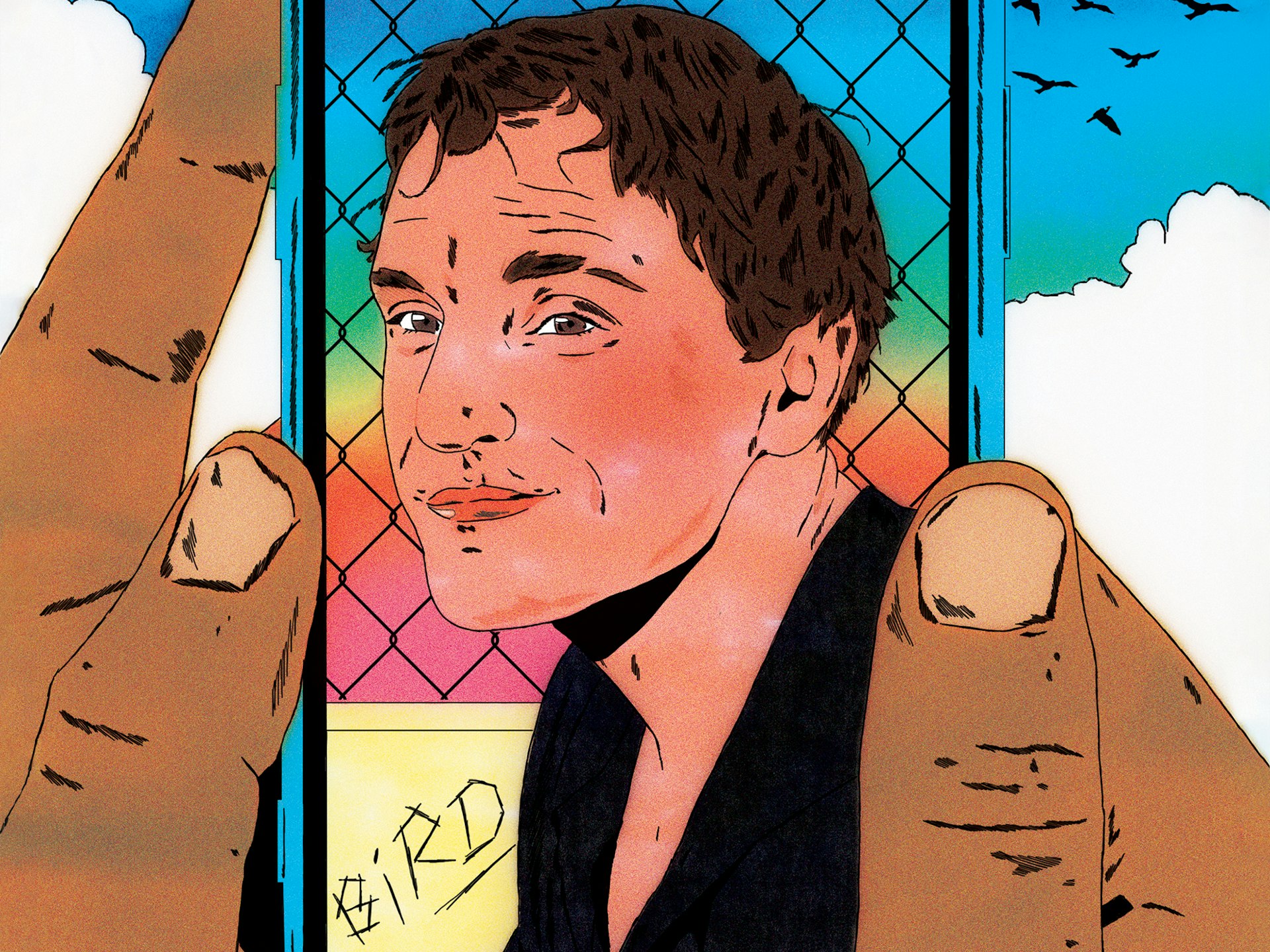
Barry Keoghan, Franz Rogowski and Andrea Arnold on ‘Bird’
The new issue of Little White Lies brings Andrea Arnold’s sixth feature to life with a thematic voyage down the Thames estuary.
Written by: Maisy Hunter
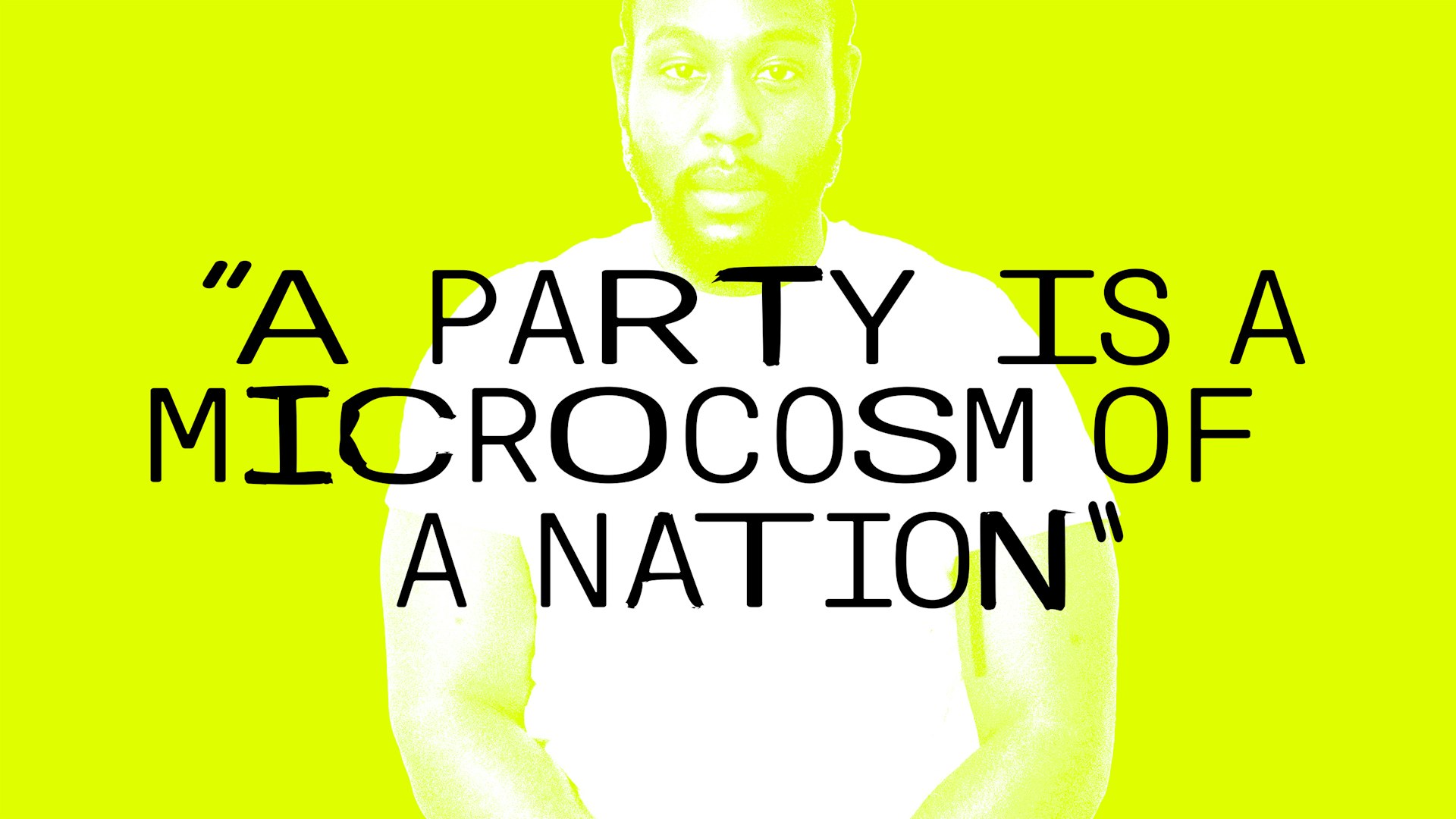
“A party is a microcosm of a nation”: Caleb Femi on the decline of the house party
To celebrate the publication of his new collection ‘The Wickedest’, Isaac Muk caught up with Femi to talk more about the work, the future of the shoobs, and discuss why having it large on a Saturday night should be cherished.
Written by: Isaac Muk
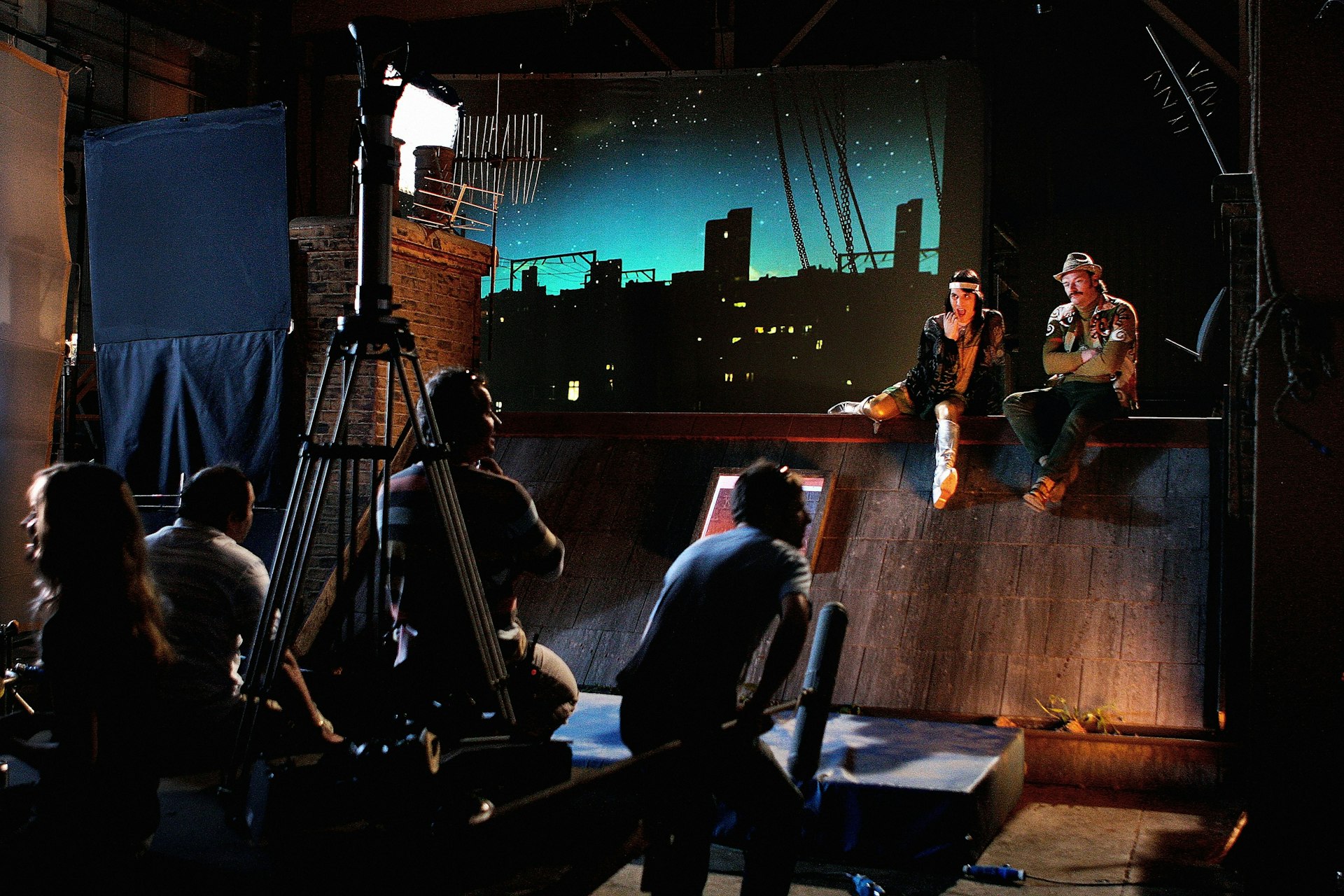
Celebrating 20 years of The Mighty Boosh
A new exhibition takes a look behind the scenes of the iconic show two decades after its BBC3 premiere.
Written by: Isaac Muk
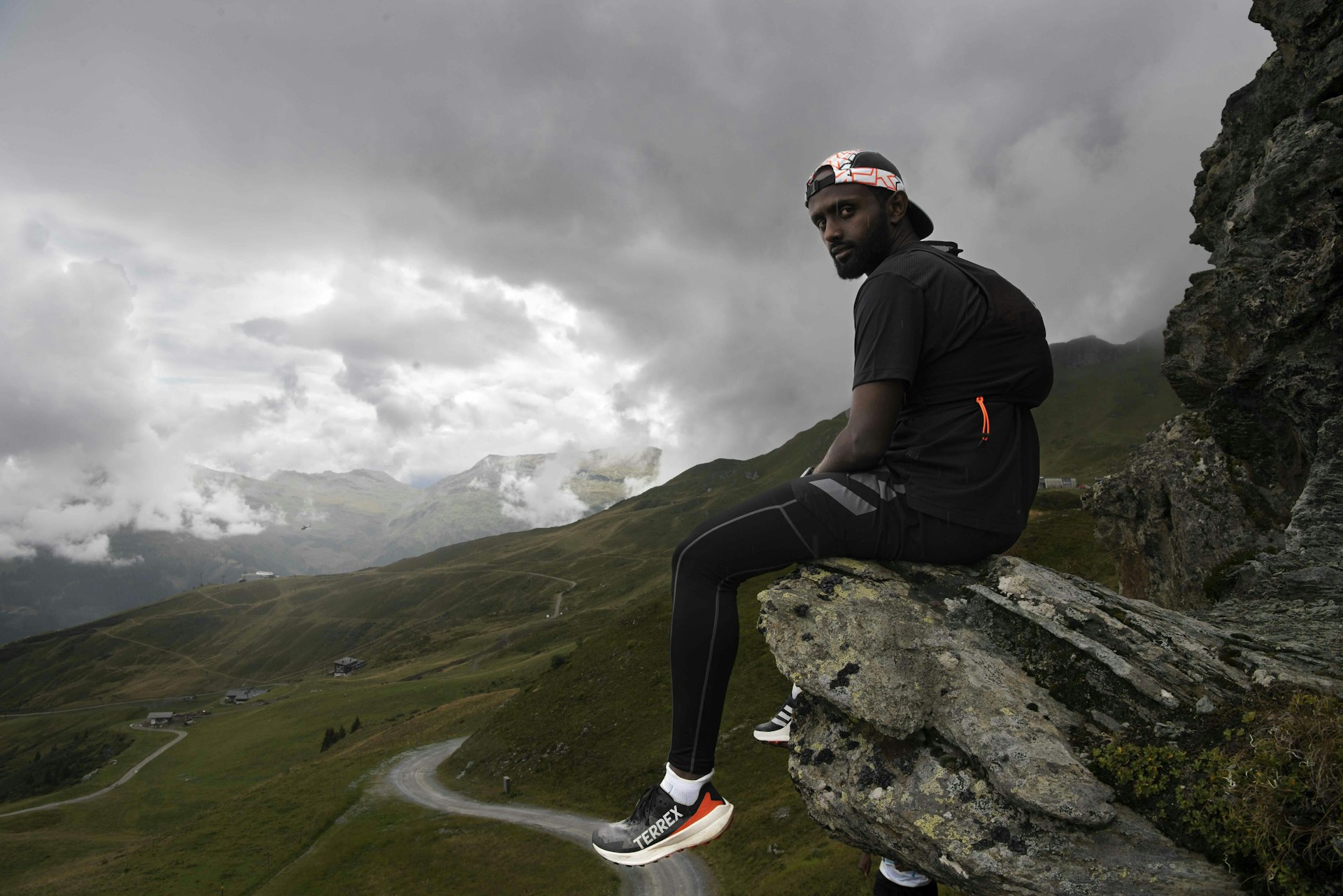
We Run Mountains: Black Trail Runners tackle Infinite Trails
Soaking up the altitude and adrenaline at Europe’s flagship trail running event, high in the Austrian Alps, with three rising British runners of colour.
Written by: Phil Young
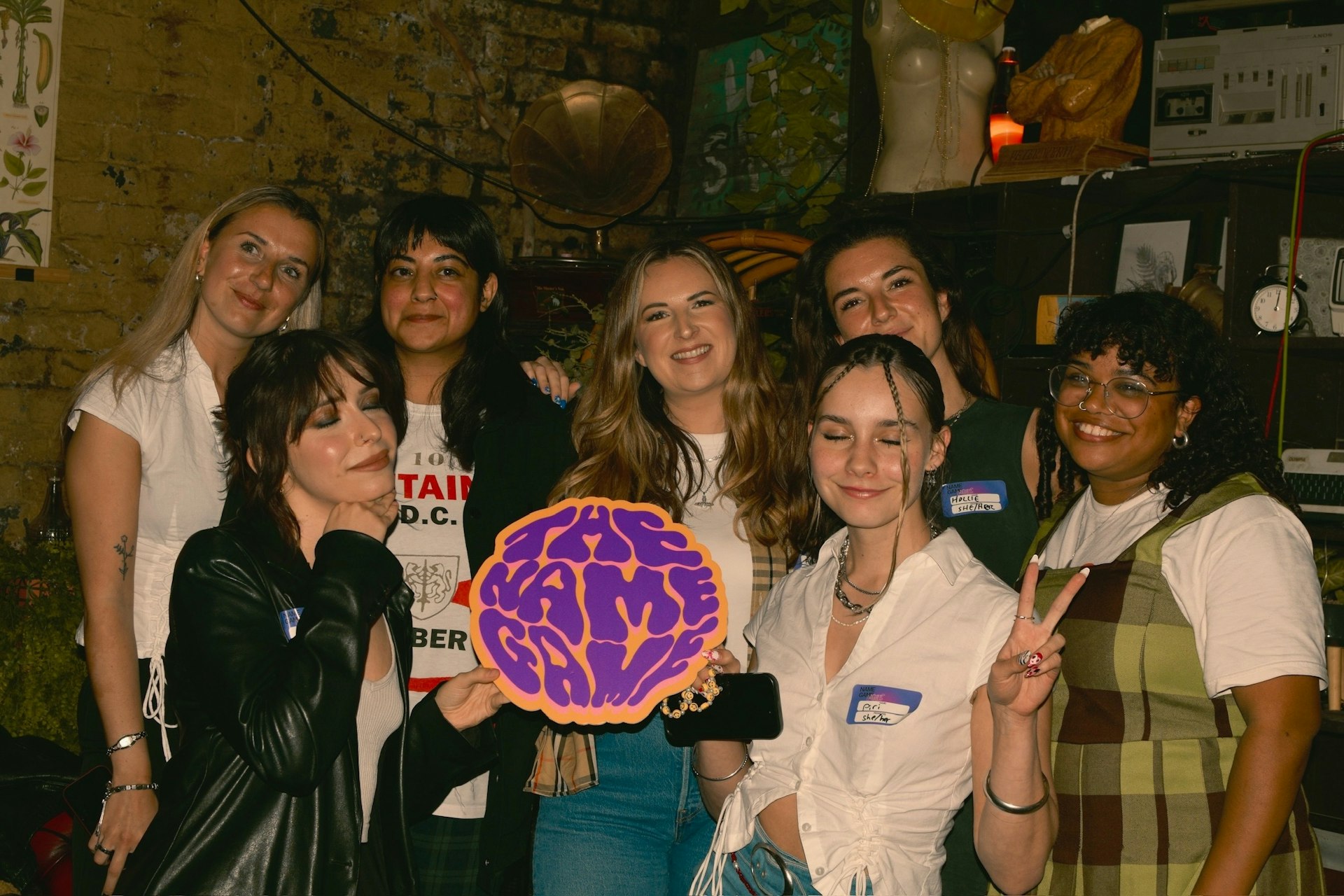
The organisation levelling the playing field in the music industry
Founded in 2022, The Name Game is committed to helping female, non-binary and trans people navigate the industry.
Written by: Djené Kaba